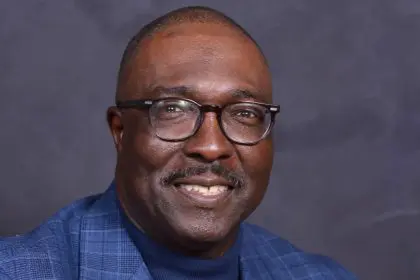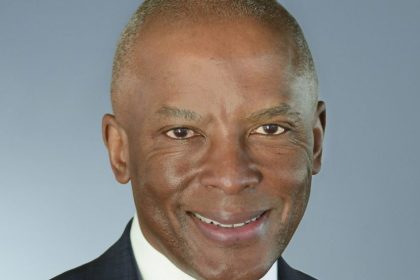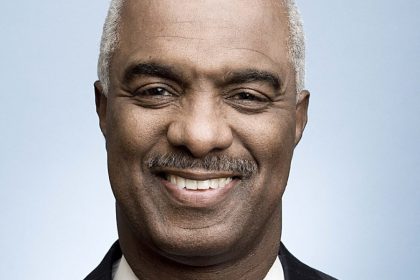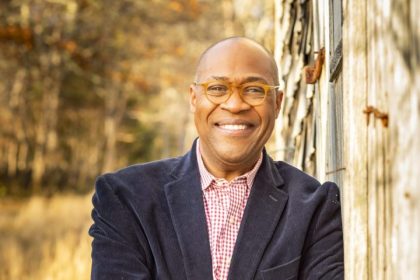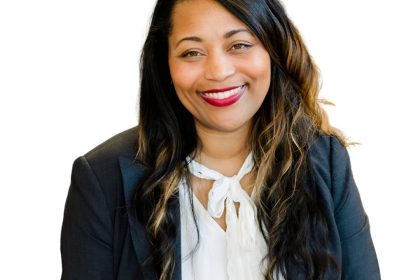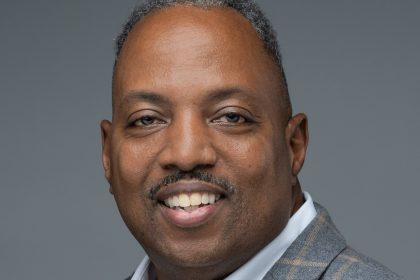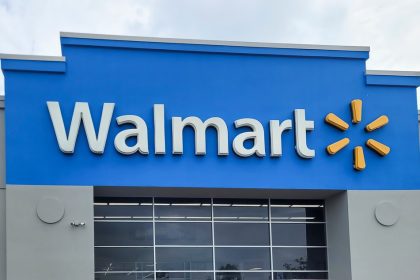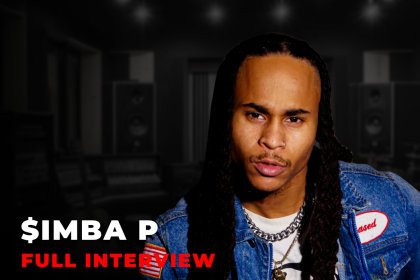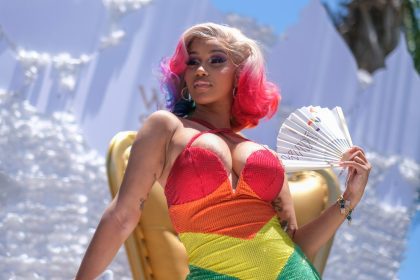In February 2018, Michelle became the 13th President of the Urban League of Metropolitan Seattle.
“I am not anxious to be the loudest voice or the most popular, but I would like to think that at a crucial moment, I was an effective voice for the voiceless, and effective hope for the hopeless” a quote by civil rights leader Whitney M. Young is Michelle’s mantra as she leads the organization towards its 92nd anniversary. Michelle Y. Merriweather joined the Urban League of Metropolitan Seattle team in August of 2015 as the Vice President. Her passion is combining her extensive sales, fund development, event planning and marketing background to better the communities in which she serves.
As a Los Angeles native, her dedication for the Los Angeles community and for being a voice for the voiceless, led her to volunteer for the Los Angeles Urban League. Her role grew from volunteer to the first woman President of the Los Angeles Urban League Young Professionals and an active member of their board of directors and a part of the National Urban League Movement. Prior to changing her career to follow her passion in advocating for African Americans and underserved communities she had a successful career in sales and marketing with major organizations such as Starbucks, Heinz, and Coca Cola.
Ms. Merriweather is taking an active role in impacting her community. She serves on the board of directors for the Alliance for Education, KUOW, United Way of King County, MultiCare Behavioral Health Foundation, the Downtown Seattle Association, and an inaugural appointee of the first Washington State Women’s Commission dedicated to shaping policy that directly impacts the women that call Washington home. Michelle is a proud active member of Delta Sigma Theta Sorority, Incorporated and serves as the advisor for the collegiate chapter at University of Washington. She a proud graduate of the Xavier University of Louisiana, the nation’s only historically Black-Catholic University, with a Bachelor of Science in Business Administration with a concentration in Marketing. In 2020, she was awarded two awards from the Puget Sound Business Journal: A Woman of Influence and a Puget Sound Power 100. In 2022, she received the Edwin T. Pratt Community Service Award from the MLKCC.
She spent some time with rolling out publisher and CEO Munson Steed and here’s their conversation:
Munson Steed: Hey, everybody! This is Munson Steed and welcome to another edition of CEO to CEO, where we bring you the most powerful CEOs in the community, making a difference every single day. I am so proud to bring to you all the way from LA, and literally not in LA now. My dear sister, CEO, running the world all over Seattle, Michelle Merriweather, how are you?
Michelle Merriweather: I’m doing well, Munson. Good to see you. How are you?
MS: I am fantastic. I’m having a phenomenal day. It’s great to reconnect with you. Just a couple of questions. If you would share your position, where you lead? And why you lead in what you do?
MM: Absolutely! Happy to. I have the honor and privileges serving as the President and CEO of the Urban League of Metropolitan Seattle. Up here in our little corner of the United States in Seattle, Washington. I have served in this role since 2018, been in Seattle since 2015, as you said born and raised in Los Angeles. And why do what I do? I love my people. And our people, our community deserve the very best. And I feel like I was, I not only choose to do this, but something tells me that I was called to do it, and I’m a person of faith, and I obey, and here I am.
MS: For those who don’t know and have zero idea of how many services the Urban League is delivering right there in Seattle to make a difference in the Black community each and every day, can you give us a peek into the window or under the covers of what you do and what’s on your agenda to advocate for each and every day?
MM: Absolutely. First, let me say what may surprise folks is that the Urban League has been serving the Seattle region since 1930. So, we’ve been up here a long time. We’re one of the oldest civil rights organizations, not only in Seattle but in this country. Advocating for black folks and underserved communities up here in the Pacific Northwest. What we do. We are a social service and advocacy, civil rights organization. So, we make sure that folks have access to opportunities, tools and resources that create economic empowerment and growth for our community.
So, be it helping folks connect to housing. Because if you don’t have safe housing you can’t go to work. You can’t focus on your education and other things. Access to decent jobs that pay fair wages in this community and then we support our kids making sure they have access to education, health, wellness, and all the things in between, and you can’t do that. And I always say this, we do really great work in connecting individuals to housing, workforce, education, etc, to get them on a level, playing field with our dominant culture peers. But until the system changes, policies change, we’ll always be doing just good work.
So, we make sure that we’re in those policy conversations advocating for black folks and an agenda for black folks that connects us to the resources and the money to help with economic parity for our community. So we do that too. So that’s the short version I can go into detail.
MS: As a CEO, what did you imagine that you wouldn’t be doing that you find yourself doing each and every day?
MM: That’s funny. I think as a CEO, I certainly thought we would be fundraising and advocating for communities. I think the thing that I probably wasn’t prepared as much for is the social work part. And I say social work, not in the community related sense. Although we do that as an organization, I’m talking about the team that works here. I am a social worker for our staff and community making sure that they’re able to have the resources they need to show up to work every day healthy, safe, especially during COVID, and all the things that happened throughout 2020.
And I’d say through 2023, to be quite honest. Those are the things, making sure that they had the resources to show up to work safely. Because we didn’t have the honor of shutting down and working from home. We were in community, and making sure that our community had testing, PPE, when vaccines are available, vaccines and all the things between. Our small businesses had access to resources and everything. But yeah, I wasn’t ready for that.
I wasn’t ready for a global pandemic and making sure that a hundred plus people and their families were safe. And then, making sure the community was protected and safe on top of that like. I think that this work that we were doing certainly prepared us but who knew. The things that we were introduced to and put through in 2020 wasn’t prepared. I don’t think anybody or any leader could have prepared for what was cast upon us in 2020.
MS: When you think about being a CEO, if you were whispering in the ear of your 20 some odd year self in LA, and talking about being a CEO. What would you whisper in her ear today? Knowing now that you’ve sat in that chair for a little while.
MM: Yeah.
MS: For all the other young sisters now that could hear. Why should they know that they can be a CEO?
MM: Yeah. I think I would tell her to walk in your truth. Stand up and be yourself, fully and unapologetically. I lead an organization that gets to advocate for Black folks, so I can do that unapologetically. I think my 20-year-old self, we always talk about code switching and being in rooms and having to change who you are, to make other folks comfortable. I don’t have to do that anymore. I hope and pray that our younger folks coming up don’t have to do that, because how uncomfortable that was to try to make other people comfortable. I will tell you to be unapologetically yourself. You are worthy, you are capable. You can walk in your truth, show compassion for others, but also be authentically who you are.
MS: Thanks for that. When you think about the fact that you’re not even, Black isn’t the majority of LA but LA represents Black very well and its truth.
MM: Yeah.
MS: Walking through Wattsburg Park. There’s always been a strength there. But when you get to the Northwest, it’s a new dynamic. And what’s it like leading where not only you not a minority, but you like, you’re the minority of a minority in an area. Where you really have to once again be living your truth and make people aware of the cultural differences? Without homogenizing the principles and the practices that have already been established by the Urban League that we deserve a part of this pie that’s right in front of us that we can see.
MM: That’s right. First, what we know for sure is that this pie was created off of our sweat, our tears, our bodies. The death of our ancestors and the brutal treatment of our ancestors. So, you know, we made the pie right? So of course, we are deserving of it. Up here, we’re only 6% of the population but when you think of all of the disparities, we are at the top of that list right? Our black boys can barely read, they’re only 30% could read at grade level by the third grade, and what we know is that that translates to the school to prison pipeline that destroys black families.
What we know is that our black businesses are 50% more likely to fail in the first two years I think, 30% of the homeownership rate compared to our dominant culture counterparts, I think even in this region, right? But the fact of the matter is because we are smaller, our challenges are greater, but they’re solvable. We have so many resources here, so much wealth here. Corporations, philanthropy, technology, all the resources to solve the challenges that can be a model for other cities where the populations are larger for black folks.
So, it’s not impossible, right? Because of all the richness and wealth that are here, and the fact that Seattle, the Pacific Northwest seems to be a place, a very liberal place where folks, White folks, Asian folks all colors of the rainbow were standing with us in protest against the murder of George Floyd and the call for racial equity. You ride down the streets of what is the Central area, what historically is a black community. Which was once 80-90% black, are now 14%. You don’t see us anymore but you see Black Lives Matter signs. So, people are saying that they care. We just need to have them show and demonstrate that truth.
So, things are happening, we got an investment of $250 million into communities that were harmed by the war on drugs last year, from the governor. So hopefully that investment changes, a down payment right on reparations for our community. A small drop in the bucket in 2020, and myself and 3 other black women launched the Black future Co-OP fund with our initial goal of raising $25 million to support black Washingtonians across the state. We’re now at, I think, $32 million. So, we’re distributing those resources across the state to black-led nonprofits and many other things that are happening. So, it can be done.
There’s a case for it. There are people that are willing to support it. Allies, co-conspirators and friends that are providing the resources to make it happen. What I love about Seattle, I’ll also add, is that Black folks up here aren’t silent. We don’t rest on our laurels. We’re out here doing the work and making sure our voices are heard. And we do that as a collect. We’re small but mighty. We’re making a difference. And may I also add that there are some wonderful brilliant black folks leading up here.
Our mayor, the Mayor of Seattle, the Mayor of Tacoma, the Mayor of Olympia. Plenty of legislators down there in Olympia, advocating on our behalf that represent us, the leader of United Way, the leader of the Y.M.C.A., all black folks. So, we got some powerful people doing some things up here, so I am not alone. We may be small, but we are definitely doing the work to represent our people.
MS: And so, in just seeing that, would you invite other individuals? It might be in Mississippi, and think about economies that are really doing well, or somebody in a more small west borough. Should they consider Seattle as a destination to continue the migration that we have always had to do to move to opportunity. Would you see Seattle with said opportunity?
MM: Seattle is a great place for opportunity. I highly encourage folks to think about calling Seattle home. Again, when you think about the companies that are headquartered here: Costco, Amazon, Microsoft and the list goes on. There are more companies headquartered here, doing business here. This is the up and coming. The next version of Silicon Valley is right here in Seattle. And I’m not saying, “Yes you can bring your skills and talents to work for those companies,” but those companies are looking for brilliant folks to work with, to consult with, to contract with.
If you are a business owner, in doing everything, not necessarily in technology, from resources and things that they purchase all the way through. Certainly, other technological advances. AI is housed right here. The next thing, the wave of AI is coming from Seattle, like magical things are happening here, so I would highly encourage. While we are few but mighty, if others come. We can certainly make some things happen, and I will say, we are building community here. It can be a welcoming place for black folks in this region that are willing and able to put in work. And that’s what we do, right? So, it can be a great place to build wealth and community up here.
MS: Lastly, if you were given a speech and traveled down to Atlanta to speak at Spelman or over the Fisk, or …
MM: Or Xavier, my own.
MS: Xavier, Dillard, and really had it. What would you share with those graduating classes as an alum and a CEO about them becoming future CEOs? And what mission would you like them to have, considering that you have decided to be CEO at the Urban League?
MM: Yeah, what I always tell people, again it goes back to walking your truth. But I started this work as a volunteer in Los Angeles. Following in my friend Kevin Hooks and others that poured into this work. I found my passion. Now I get paid to do the work that I was doing for free, because I was passionate about it. A friend of mine many years ago, and I borrowed this, I found my “occu-passion.” I found the thing that fills my cup, but also allows me to provide a roof for my head and resources for my family.
So, I encourage anybody, any young person that dares to dream. Identify the thing that you are passionate about and go at it with your full heart. Sometimes you may have to do it for free, hopefully not. But if you’re walking in your truth and in your passion your guests make room for you at the end of the day. your guests make room for you. And so, I highly encourage you to walk in your truth. Certainly, I’ve had the work right to put a roof over my head or pay my bills or pay my student loan debt. So, I’ve worked for many companies and along the way, I honed in my skills and my passion. So it’s okay to work to pay the bills, but don’t stop honing in on your passion until you find it, and you will. If you keep going, you will.
MS: Super. Well, ladies and gentlemen, you heard it first right here on rolling out CEO to CEO. My dear sister, thank you. Thank you. Thank you, Michelle.
MM: Thank you, Munson. Thank you, for all you do for our community and our people. I so appreciate you.
MS: I appreciate you, too, sister.

